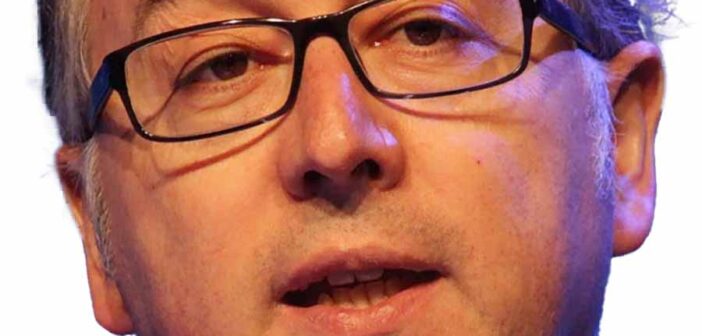
International Airlines Group (IAG), the parent company of British Airways, Iberia, Vueling, Aer Lingus, and LEVEL, unveiled its financial results for the second quarter and first half of 2025 today, painting a picture of resilience amid a challenging aviation landscape.
The Spanish group reported a robust performance, with Q2 operating profit reaching €1.1bn , a slight dip from the record €1.25bn posted in Q2 2023, but still reflecting strong demand across its core markets. Total revenue for Q2 stood at €8.2bn , up 5.3pc from €7.8bn in the same period last year, driven by a 6.8pc increase in passenger numbers to 31.1m. For the first half of 2025, IAG’s revenue climbed to €14.9bn, a 5.6pc rise from €14.1bn in H1 2024, while operating profit held steady at €1.3bn , closely aligning with the previous year’s figures.
The group’s performance was bolstered by sustained demand for transatlantic routes, particularly to North and South America, where IAG maintains a commanding 45pc market share. British Airways and Iberia emerged as standout performers, with the former reporting a Q2 operating profit of €512m, despite disruptions from rising fuel costs and labour negotiations. Iberia, meanwhile, posted a €320m profit, capitalising on strong leisure demand in Spain and Latin America. Aer Lingus, however, faced headwinds, with profits declining due to ongoing pilot disputes that led to operational disruptions earlier in the year. Vueling and LEVEL maintained stable contributions, supported by high load factors in European leisure markets.
IAG’s chief executive, Luis Gallego, expressed cautious optimism, highlighting the group’s ability to navigate geopolitical tensions, supply chain constraints, and volatile fuel prices. He noted that forward bookings for Q3 and Q4 remain encouraging, with 70pc of passenger revenue already secured for the fourth quarter. The group’s focus on fleet modernisation continues, with plans to take delivery of 27 new aircraft in 2025, including fuel-efficient Airbus A320neo and Boeing 737 MAX models. These investments align with IAG’s sustainability goals, as it ramps up the use of sustainable aviation fuel (SAF), targeting a 10pc SAF blend by 2030.
Analysts reacted positively to the results, with IAG’s share price rising 4.8pc in early trading. The group’s net debt fell to €5.8bn from €6.2bn at the end of Q1, reinforcing its investment-grade credit rating. However, concerns linger over rising non-fuel unit costs, up 3.1pc year-on-year, driven by higher labour and maintenance expenses. Some investors remain wary of potential disruptions from labour disputes and macroeconomic uncertainties, particularly in the US economy segment, which showed signs of softening.
IAG Cargo, the group’s freight division, reported a 4.2pc increase in tonnage for H1 2025, though yields remained below 2023 levels, reflecting a normalisation of the air cargo market. The division’s revenue reached €580m, up 2.5pc from €566m in H1 2024, supported by expanded ground transportation solutions in North America and Europe. The group’s loyalty programme also shone, with profits rising 15pc to €220m, driven by increased engagement through innovative schemes like Avios-only flights.
As IAG looks to the second half of 2025, it expects to maintain capacity at 98pc of pre-pandemic levels, with a focus on strengthening its hubs in London, Madrid, Barcelona, and Dublin. While challenges such as fuel price volatility and labour relations persist, the group’s diversified portfolio and strategic investments position it well to capitalise on the enduring appetite for air travel. Gallego concluded by reaffirming IAG’s commitment to delivering sustainable value for shareholders and customers, underscoring its role as a global aviation leader.
Shamrock flying high

Aer Lingus delivered an operating profit of £105m for Q2 2025, a marked improvement from the £71m recorded in Q2 2024. This performance has propelled the airline’s half-year operating profit to £62m for the first six months of 2025, a substantial leap from the £7m achieved in the same period last year. The figures, released on 1 August 2025, underscore a period of strong growth and resilience for the Irish flag carrier amidst a challenging aviation landscape.
The financial upturn in Q2 was driven by a combination of increased capacity, robust revenue growth, and advantageous fuel pricing. Aer Lingus saw a 10.9pc increase in overall capacity and a 4.3pc rise in passenger numbers compared to the same quarter in 2024. This growth reflects the airline’s strategic expansion, particularly in its transatlantic offerings. In the summer of 2025, Aer Lingus launched its most extensive North American network to date, introducing new routes from Dublin to Nashville and Indianapolis, alongside an expanded European leisure network. Looking ahead, the airline announced plans for its first direct flight to Cancún, Mexico, set to commence in January 2026, further bolstering its long-haul portfolio.
Aer Lingus also advanced its fleet modernisation, taking delivery of its third Airbus A321 XLR aircraft in May 2025, with the remaining three of six ordered XLRs expected to join the fleet later this year. These fuel-efficient aircraft are central to the airline’s ambitions for sustainable growth and enhanced customer experience. The carrier’s commitment to quality was further recognised in the Ireland Reputation Index survey published in May, where Aer Lingus was ranked as the fourth most trusted brand in Ireland, a testament to its ongoing investment in customer service.
However, challenges loom on the horizon for Aer Lingus, particularly at its Dublin Airport hub. Lynne Embleton, the airline’s chief executive, expressed concerns over a recent decision by An Coimisiún Pleanála (ACP) to impose an annual restriction on night-time flight movements at Dublin Airport. This measure, intended to address noise concerns, is seen as a significant barrier to the airline’s growth, particularly for its North Atlantic routes and plans to base additional short-haul aircraft in Dublin. Embleton warned that the restriction, coupled with the ongoing uncertainty surrounding the 32m passenger cap at Dublin Airport, could have detrimental economic and employment consequences for Ireland. She called for urgent government intervention to legislate the removal of the passenger cap, arguing that it is critical to sustaining the airline’s growth trajectory and supporting Ireland’s connectivity.
Embleton highlighted the momentum built over recent quarters, sharing, “Our Q2 2025 financial performance builds upon the positive trends seen in both Q4 2024 and Q1 2025. However, the night-time noise restrictions and the unresolved passenger cap at Dublin Airport threaten to undermine this progress. It is imperative that these barriers are addressed to ensure Aer Lingus can continue to drive economic benefits for Ireland.” As IAG and Aer Lingus navigate these challenges, the airline remains focused on leveraging its expanded network and modern fleet to maintain its competitive edge in the global aviation market.




